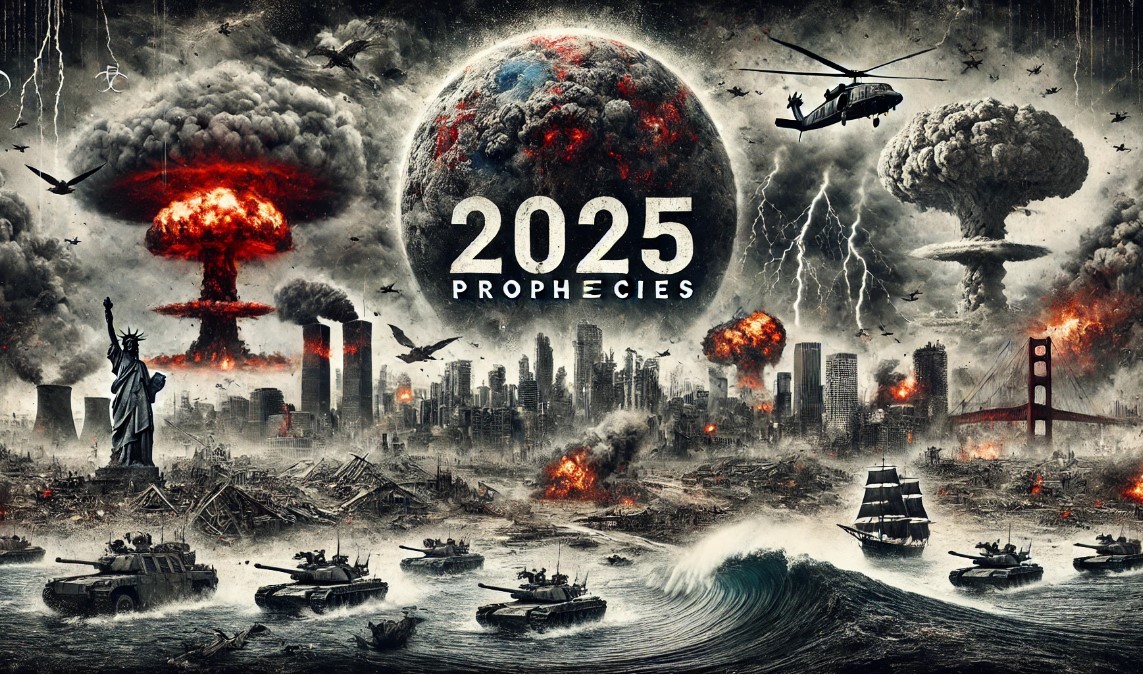Nostradamus’ Prophecies for 2025: Insights into a Controversial Prophetic Legacy
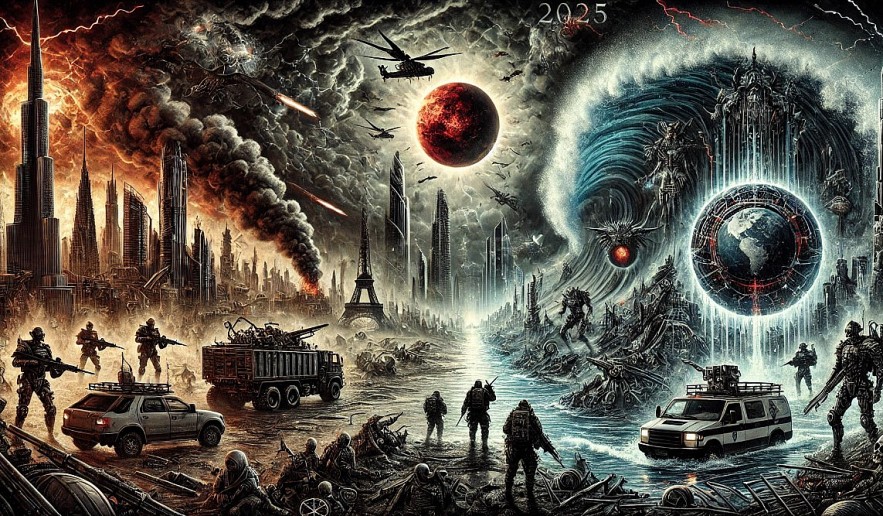 |
| Nostradamus and His Legacy |
Nostradamus and His Legacy
Nostradamus, or Michel de Nostredame, is one of history’s most enigmatic figures, often hailed as one of the most remarkable prophets of all time. Born in 1503 in France, he rose to prominence as a seer and a physician, publishing Les Prophéties in 1555, a book that would solidify his place in history. His writings, composed in the form of quatrains or four-line verses, are often cryptic and veiled in metaphor, making them open to interpretation across the centuries.
Despite skepticism from academics and experts, his work continues to attract fascination and debate. Nostradamus’ prophecies, particularly those aligned with global catastrophes and political upheavals, resonate with readers looking for clues about the future.
Over the years, some followers of Nostradamus have linked his words to real-world events such as World War II, the Great Fire of London, and even the 9/11 attacks. The allure of Nostradamus lies in the possibility that his prophecies may still hold truths about future events. For 2025, interpretations of his verses continue to be analyzed, sparking curiosity about what lies ahead.
How Nostradamus’ Prophecies Are Interpreted
Nostradamus wrote in a style that has confounded readers and scholars for centuries. His verses are often written in a mix of archaic French, Latin, and Greek, blending historical references with astrological predictions. He employed symbolism, wordplay, and veiled language that has led to various interpretations.
Scholars suggest that he may have intentionally obscured his prophecies to avoid persecution during his lifetimeng to researcher Peter Lemesurier, the ambiguity was also intended to provide his work with a degree of timelessness, allowing readers to apply his words to different periods in history .
The iive flexibility of Nostradamus’ writings has given rise to numerous speculative readings. Some enthusiasts study each quatrain for clues about potential events, while others link his work with modern issues like climate change, technological advancements, and geopolitical tensions. Interpretations vary widely, with some readers taking Nostradamus' quatrains literally, while others consider them symbolic. The mystery surrounding his language has contributed to his legacy, as people continue to wonder whether Nostradamus truly foresaw future events or if his words are a product of insightful observation rather than supernatural prophecy.
Nostradamus' Key Predictions for the 2020s
Many interpretations of Nostradamus’ writings suggest that he predicted the turmoil of the 2020s. The decade has indeed seen significant disruptions, from the COVID-19 pandemic to geopolitical tensions, environmental catastrophes, and economic instability. Some quatrains have been interpreted to predict these very challenges. For instance, phrases like "a great plague" and "cities half-dead" have been linked to the pandemic. Additionally, Nostradamus’ descriptions of “flooding rivers” and “global warming” resonate in an era of heightened environmental awareness and increasingly severe climate crises .
Some interprete Nostradamus foresaw widespread economic turmoil and civil unrest, which aligns with the global increase in social and political unrest since the pandemic. Issues such as rising inequality, political polarization, and environmental degradation have all escalated, fostering an environment that matches some of Nostradamus' more ominous prophecies. While critics argue that these interpretations may be retrofitted, enthusiasts maintain that Nostradamus was remarkably prescient about the trials facing humanity in the 2020s.
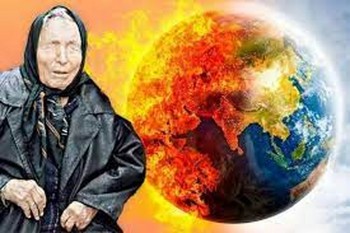 Predictions of Blind Prophet Vanga for 2025 and Beyond Predictions of Blind Prophet Vanga for 2025 and Beyond |
Predictions for 2025: Analysis of Key Themes
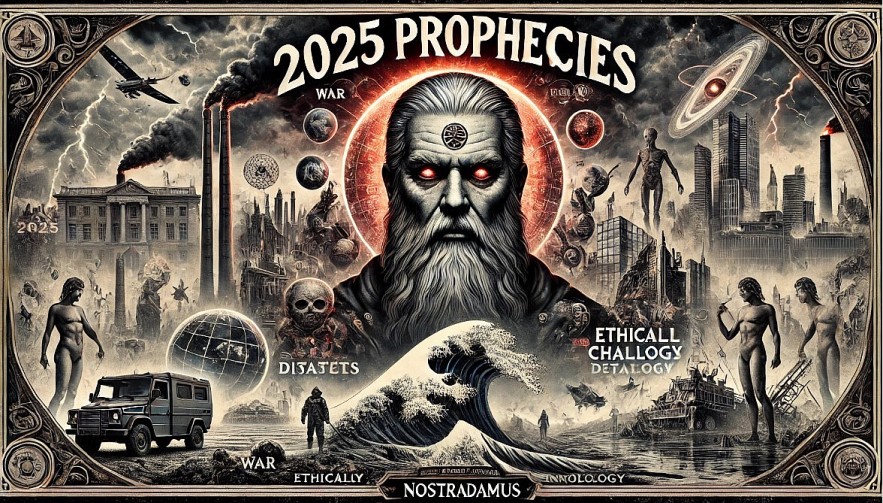 |
| Nostradamus 2025 Prophecies |
1. Global Conflict and Political Shifts
One of the most commonly interpreted themes in Nostradamus’ predictions is global conflict and political upheaval. Some quatrains hint at a "great war" or a "conflict between East and West," which have led interpreters to link them with the growing tensions between superpowers. In particular, escalating tensions between nations like the United States, Russia, and China have many believing that a significant geopolitical event may occur in 2025 .
The phrase "two great war" has been associated with potential conflicts, possibly exacerbated by resource scarcity, political instability, or territorial disputes. Analysts and historians have noted that such prophecies align with current tensions around natural resources, energy demands, and territorial interests. These prophecies gain relevance as nations jockey for economic and political power, leaving readers to wonder if Nostradamus foresaw the return of a polarized world order reminiscent of the Cold War.
2. Environmental Catastrophes
Nostradamus’ writings are rife with references to natural disasters, which have led many to speculate about his predictions on climate change and ecological crises. Terms like "fire in the sky," "great floods," and “earthly tremors” have been interpreted as warnings about wildfires, hurricanes, earthquakes, and other disasters driven by environmental instability . In 2025, environmental concerns ad to be at the forefront of global challenges, as the consequences of climate change become more apparent. Nostradamus’ references to extreme weather events resonate in a world where wildfires, hurricanes, and droughts are increasingly common.
Recent scientific studies have confirmed that climate change will continue to cause erratic and destructive weather patterns, and some of Nostradamus' predictions eerily align with these findings. His vision of “oceans rising” and “lands submerged” speaks directly to the growing fear of rising sea levels and severe flooding. For some believers, Nostradamus accurately foresaw the current climate crisis, while skeptics argue that his verses are too vague to apply to specific environmental events.
3. Technological Advances and Ethical Questions
Nostradamus’ predictions for the mid-2020s are believed to include hints at technological advancements, particularly in the realms of artificial intelligence and biotechnology. Lines mentioning "thinking machines" and "men made gods" have been interpreted as foreseeing developments in AI and genetic engineering . In recent years, AI and biotechnology haveed, raising both optimism and ethical concerns about the future. As AI continues to evolve, questions about its role in society, its potential impact on employment, and its ethical implications have become increasingly pressing.
Some interpreters argue that Nostradamus may have anticipated the moral and philosophical dilemmas posed by advanced technologies. His writings hint at humanity’s potential overreach, with phrases that imply caution against humanity’s manipulation of nature. These warnings are timely in light of current ethical debates surrounding genetic modification, machine learning, and the limits of human innovation. Nostradamus’ followers interpret his words as a call for moderation and responsibility as we approach an age where technology will fundamentally alter human existence.
4. Social Upheaval and Transformation
Social upheaval and transformation are recurring themes in Nostradamus' predictions, with references to revolutions, mass migrations, and the collapse of social norms. These quatrains may reflect societal tensions, political protests, and demands for social justice that have emerged in recent years. As of 2025, demographic shifts, economic disparities, and cultural conflicts continue to drive social change, aligning with Nostradamus’ descriptions of “cities in turmoil” and “societies divided” .
In particular, the rise of global protest movementng calls for racial, economic, and environmental justice, resonate with the turmoil Nostradamus predicted. Some experts believe that social media and digital communication have amplified these movements, allowing for faster and more widespread mobilization. The acceleration of social changes and the demand for equality and justice in diverse aspects of life may lead to transformations that align with Nostradamus’ vision of a rapidly evolving world.
Learn more: 2025 Nostradamus Prediction: War, Conflict and Natural Disasters
Criticisms and Skepticism of Nostradamus' PredictionsDespite the allure of Nostradamus' prophecies, there is significant skepticism about the accuracy and applicability of his predictions. Critics argue that the vague and metaphorical nature of his verses allows them to be retroactively fitted to almost any major event, a phenomenon known as "retroactive clairvoyance" . Furthermore, some scholars contend that Nostradamus’ predictften generalized enough to fit a variety of situations. Skeptics also argue that Nostradamus was merely an astute observer of human nature and historical cycles, rather than a supernatural prophet. Academic sources, such as James Randi’s The Mask of Nostradamus, explore these critiques, suggesting that Nostradamus was not divinely inspired but rather used known historical patterns to anticipate future events. Historians also note that Nostradamus’ prophecies can often be interpreted differently based on the reader’s biases and contemporary issues, rendering them unreliable as genuine predictions. |
Conclusion
Nostradamus remains a subject of intrigue, with his prophecies fueling debate and fascination. His writings for 2025 raise both curiosity and skepticism, presenting an ambiguous but captivating view of the future. Whether Nostradamus' words should be taken as legitimate prophecies or seen as reflections of human fears and hopes remains uncertain. Nonetheless, his work invites readers to contemplate the future with both caution and curiosity. Perhaps his greatest achievement is his ability to make humanity reflect on its trajectory—a gift that continues to captivate people, even centuries after his death.
Frequently Asked Questions (FAQs) About Nostradamus’ 2025 Predictions
Q1: Who was Nostradamus, and why are his predictions still relevant today?
A: Nostradamus was a 16th-century French astrologer and physician who became famous for his book Les Prophéties, a collection of cryptic quatrains that many believe predicted future events. His predictions remain relevant today due to their ambiguity, which allows readers to interpret them in the context of contemporary issues like global conflict, environmental crises, and technological changes.
Q2: How accurate have Nostradamus’ predictions been historically?
A: The accuracy of Nostradamus’ predictions is widely debated. Supporters claim he accurately predicted events such as the rise of Napoleon, World War II, and the 9/11 attacks. Critics argue that his verses are so vague that they can be retroactively matched to any event, leading to interpretations influenced by current events rather than actual prophecy.
Q3: Why are Nostradamus’ prophecies so difficult to interpret?
A: Nostradamus wrote his prophecies in an archaic mix of French, Latin, and Greek, often using metaphor and wordplay. He is believed to have done this both to obscure his predictions and to avoid persecution. This style makes his prophecies highly open to interpretation, allowing multiple and sometimes contradictory readings.
Q4: What are the key themes in Nostradamus’ predictions for 2025?
A: For 2025, interpreters have highlighted themes such as global conflict, environmental disasters, technological advances, and social upheaval. Each of these topics is derived from quatrains that seem to suggest major shifts in political power, increased natural disasters, breakthroughs in technology that raise ethical questions, and widespread societal changes.
Q5: Are there any scientific bases supporting Nostradamus’ environmental predictions?
A: While Nostradamus did not have scientific knowledge of climate change, some of his predictions about floods, fires, and natural disasters align with current environmental concerns. Scientists have documented the rising frequency and intensity of such events due to global warming, making these particular prophecies seem eerily relevant, though they remain speculative rather than scientific.
Q6: Why do some people remain skeptical of Nostradamus’ predictions?
A: Skeptics argue that Nostradamus' predictions are too vague to be credible. They contend that his verses can be interpreted in many ways, leading to "retroactive clairvoyance," where readers match past events to quatrains after they occur. This selective reading approach reduces the credibility of his prophecies, according to critics.
Q7: Can Nostradamus’ predictions be used as reliable guides for the future?
A: Nostradamus’ predictions are not considered reliable guides for the future in a scientific sense. They are more often viewed as reflections of human concerns and patterns, rather than concrete forecasts. While intriguing, most experts advise interpreting them as literary and historical artifacts rather than predictive tools.
 What Did Vanga - Nostradamus Predict for King Charles III? What Did Vanga - Nostradamus Predict for King Charles III? Baba Vanga and Nostradamus of the Balkans, the two blind mystics, have caught attention again recently thanks to their accurate predictions about the Queen Elizabeth ... |
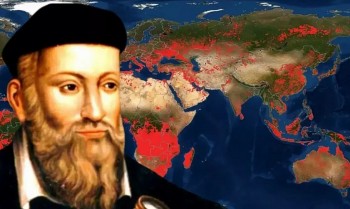 What Did Nostradamus Predict for the World in 2024 And Fact-Check What Did Nostradamus Predict for the World in 2024 And Fact-Check Fact - Check: Nostradamus Prophecies 2024 - What did Nostradamus predict for the World in 2024? |
 Vanga - Nostradamus Prophecies About Japan's Earthquake in 2024 Vanga - Nostradamus Prophecies About Japan's Earthquake in 2024 Vanga, the blind prophet, once prophesied that a significant earthquake would strike the Pacific Rim region in 2024. French prophet Nostradamus also had a similar ... |
 Nostradamus' Terrifying Prophetic Verses Nostradamus' Terrifying Prophetic Verses Nostradamus' poems frequently conceal prophecies that coincide with well-known historical events all over the world. |
 What Does Nostradamus AI Forecast for the World in the Next 100 Years What Does Nostradamus AI Forecast for the World in the Next 100 Years What if artificial intelligence (AI) could foretell potential future events in the manner of the famed 16th ... |


